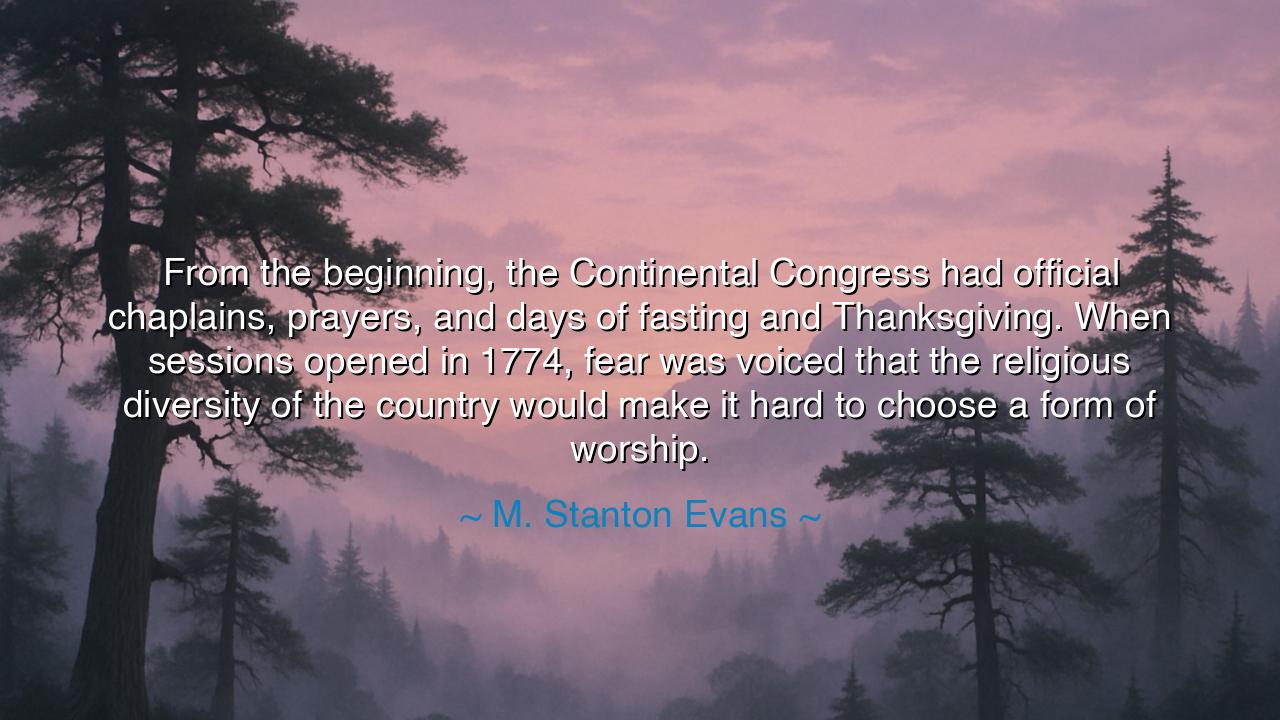
From the beginning, the Continental Congress had official
From the beginning, the Continental Congress had official chaplains, prayers, and days of fasting and Thanksgiving. When sessions opened in 1774, fear was voiced that the religious diversity of the country would make it hard to choose a form of worship.






In the words of M. Stanton Evans: “From the beginning, the Continental Congress had official chaplains, prayers, and days of fasting and Thanksgiving. When sessions opened in 1774, fear was voiced that the religious diversity of the country would make it hard to choose a form of worship.” These words remind us of the fragile birth of a nation, when the struggle for independence was not merely against a king, but also within the hearts of the colonies themselves. For the early leaders knew that unity was a delicate thread, and that faith, though a source of strength, could also become a source of division.
The ancients, too, knew that no republic could endure without reverence for the divine. In Greece, sacrifices were made to the gods before councils. In Rome, auguries were read before battles and decrees. And yet, they also knew that religion could divide as much as it could unite. So too the Continental Congress stood at this threshold in 1774: they recognized the need for prayer, for humility before God, yet they trembled at the challenge of honoring a land where Puritans, Anglicans, Catholics, Quakers, Baptists, and others already worshipped differently.
Consider the scene: the delegates gathering in Philadelphia, burdened by the weight of rebellion, uncertain if their fragile unity would hold. Samuel Adams, a fiery Puritan, urged the calling of prayer, while some worried that sectarian differences would tear them apart. Yet when Rev. Jacob Duché, an Anglican, prayed aloud from the Psalms, the room was moved to tears. Those men, from many different churches, found common ground in words older than their quarrels. Thus was born the tradition of chaplains, prayers, and days of Thanksgiving in the halls of America’s governance.
This was no small moment, for it revealed a truth that would shape the new republic: that while men might differ in creed, they could unite in gratitude, humility, and reverence. The early Congress declared days of fasting when defeat weighed heavy, and days of Thanksgiving when victories lifted their hearts. These acts bound the colonies together not only by law and ink, but by shared ritual, by recognition of a higher Providence guiding their cause.
Evans points also to the fear of diversity, a fear still known to us today. Could thirteen colonies, worshipping differently, stand together? Would sectarian strife undo the dream of liberty before it began? The answer lay not in erasing differences, but in finding unity without uniformity. The Congress did not demand one creed, but they still prayed, still gave thanks, still humbled themselves together. In this balance, they discovered a new model for the world: a nation where religion was honored, yet no single sect held dominion.
The lesson is clear: true unity does not demand sameness, but shared reverence, shared humility, and shared gratitude. The Continental Congress could have allowed fear of difference to paralyze them, but instead they reached for what bound them together. Their example teaches us that in times of crisis, we too must seek not what divides us, but what uplifts all, and root ourselves in rituals that call the human spirit upward.
Practical action lies before us: in our families, communities, and nations, let us preserve days of Thanksgiving, moments of shared prayer or reflection, times of fasting and renewal. Do not let diversity of thought or belief become a stumbling block, but rather see it as strength, so long as it is joined by humility and gratitude. Teach your children that reverence, in whatever form it takes, is a pillar of endurance, for no people can long survive without anchoring themselves in something higher than themselves.
Thus, Evans’s words carry the weight of ancient truth dressed in the garments of American history. From the very dawn of independence, the leaders of the new nation turned to chaplains, prayers, and rituals of fasting and Thanksgiving—not to erase their differences, but to survive them. And in that survival, they laid the foundation for a people who could be many in faith, yet one in purpose.






AAdministratorAdministrator
Welcome, honored guests. Please leave a comment, we will respond soon